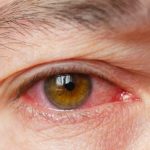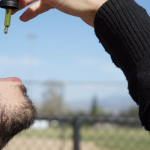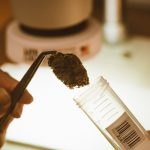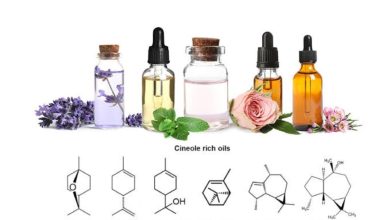Features of the Best CBD Oil
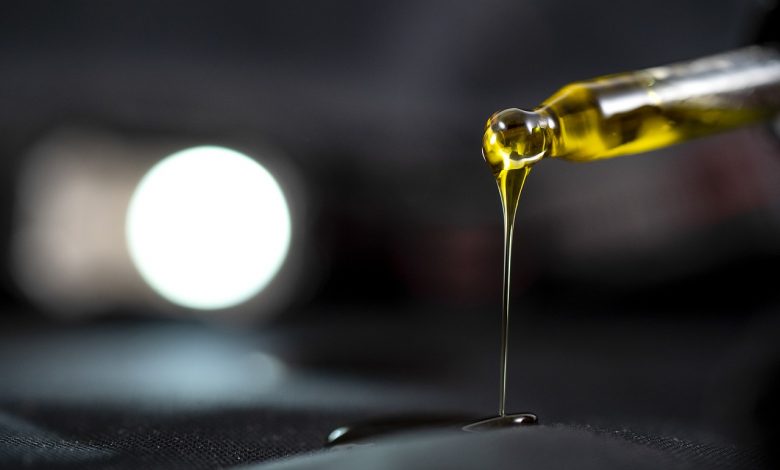
What is CBD oil?
Cannabidiol (CBD) oil is a product that’s derived from cannabis. It’s a type of cannabinoid, which are the chemicals naturally found in marijuana plants. Even though it comes from marijuana plants, CBD doesn’t create a “high” effect or any form of intoxication — that’s caused by another cannabinoid, known as THC. This quality makes CBD an appealing option for those who are looking for relief from pain and other symptoms without the mind-altering effects of cannabis or other side effects related to some pharmaceutical drugs.
CBD oil is made by extracting CBD from the cannabis plant and then diluting it with a carrier oil like coconut oil or hemp seed oil. CBD can be found in a variety of products online and in stores, including dietary supplements, bath soaks, drinks, and food.
CBD oil is available in three formulas:
• Full-spectrum CBD oil: These products contain other compounds from the cannabis plant, including cannabinoids and terpenes. They typically contain small amounts of THC as well.
• Broad-spectrum CBD Oil: These products contain all of the chemicals in the cannabis plant except THC.
• CBD isolates: This is the purest form of CBD oil. It does not contain any additional cannabinoids or terpenes.
One reported benefit of full-spectrum and broad-spectrum CBD products is the entourage effect, which is the beneficial interaction of cannabinoids and terpenes. The cannabis plant contains many different cannabinoids. Researchers believe that CBD is more effective when other cannabinoids are also present.
Isolate products do not produce the entourage effect because they contain pure CBD without any other cannabinoids. Studies suggest that these products may be less effective.
Benefits of CBD oil
CBD oil continues to gain momentum in the health and wellness world, with some scientific studies finding that it may ease symptoms of several conditions. A high-quality CBD oil may address a variety of thyroid dysfunctions. This underperformance includes hypothyroidism, hyperthyroidism, goiter, thyroiditis, and thyroid storm. All of the above conditions are triggered by chronic inflammation of the thyroid gland due to the body’s autoaggressiveness.
CBD has been touted for a wide variety of health issues, but the strongest scientific evidence is for its effectiveness in treating some of the cruelest childhood epilepsy syndromes, such as Dravet syndrome and Lennox-Gastaut syndrome (LGS), which typically don’t respond to antiseizure medications. In numerous studies, CBD was able to reduce the number of seizures, and, in some cases, stop them altogether. Epidiolex, which contains CBD, is the first cannabis-derived medicine approved by the FDA for these conditions.
Animal studies, and self-reports or research in humans, suggest CBD may also help with:
• Anxiety. Studies and clinical trials are exploring the common report that CBD can reduce anxiety. People report that oral CBD helps relieve anxiety and pain and also leads to better sleep. However, the same may not be true for a host of other CBD products on the market today, in particular, those that are rubbed on the skin. It’s hard to know whether these have any clinical benefit because they haven’t been tested sufficiently.
• Insomnia. Studies suggest that CBD may help with both falling asleep and staying asleep.
• Chronic pain. Further human studies are needed to substantiate claims that CBD helps control pain. One animal study from the European Journal of Pain suggests CBD could help lower pain and inflammation due to arthritis when applied to the skin. Other research identifies how CBD may inhibit inflammatory and neuropathic pain, which are difficult to treat.
• Addiction. CBD can help lower cravings for tobacco and heroin under certain conditions, according to some research on humans. Animal models of addiction suggest it may also help lessen cravings for alcohol, cannabis, opiates, and stimulants.
According to a report from the World Health Organization, “In humans, CBD exhibits no effects indicative of any abuse or dependence potential…. To date, there is no evidence of public health-related problems associated with the use of pure CBD.
Is CBD oil safe?
The safest way to take CBD is as a tincture (a concentrated liquid typically administered with a dropper). Steer clear of any illegally sold synthetic CBD products, sometimes called “spice” or “bath salts.” These products have induced psychotic reactions in some people and pose a major health risk.
For adults, CBD oil appears to be a very safe product. CBD does produce side effects for some people, including nausea, fatigue, and irritability. It may also interact with certain medications, so always check with your doctor before use.
But for children under age 21, it’s a different story. It’s also not clear if any amount of CBD oil is appropriate for children.
More will be known in the next 5 to 10 years, including whether there are yet undiscovered problems associated with long-term use.
Features of the Best CBD Oil
With hundreds of CBD oil products on the market, choosing the right product can be a herculean task. In fact, the FDA has issued several warning letters to companies and individuals that market unapproved new drugs that allegedly contain CBD. The FDA has tested the chemical content of cannabinoid compounds in some of the products, and many were found to not contain the levels of CBD the manufacturers had claimed they contain.
According to Goodrx, the following features can help you buy the best CBD oil products and avoid fake CBD oil.
Examine the product’s label to help you determine if you are purchasing legitimate CBD. Be sure that the label contains the:
• Name and address of the manufacturer or distributor
• Cannabinoid content
• Ingredients (including non-cannabis additives)
• Net quantity (weight)
• Lot, batch, or control number
• Production date
• Expiration date
• Instructions on how to use and store the product
• Suggested serving size or dosing information
• Warnings/contradictions
If a CBD oil product fails to include all of this information on the label, then it may not be legitimate.
Verifying a product’s Certificate of Analysis (CoA) is important when looking for a high-quality product. Third-party laboratories produce CoAs to ensure that CBD products are safe and properly labeled. All reputable CBD oil companies provide batch-specific lab results, which you can usually find on the company’s website. If the product you’re buying doesn’t come with a CoA, then it is not a reputable product.
How do you choose the best CBD?
To choose the highest-quality CBD oil, be sure to keep the following tips in mind:
• Shop at reputable places: Avoid purchasing CBD oil products at gas stations or smoke shops. Instead, consider buying CBD oil from licensed dispensaries or online companies that provide information on their growing and manufacturing practices, as well as their lab results.
• Purchase domestically grown products: These are required to meet quality-control standards determined by the USDA.
• Select USDA organic products: Cannabis absorbs toxins that can pass to you, so finding products that are grown without pesticides and fertilizers is ideal.
• Check the CoAs: Be sure that products are tested by third-party labs, which verify the products’ cannabinoid content, purity, and safety.
• Choose the right spectrum: For many people, full-spectrum and broad-spectrum CBD products are better than CBD isolate products because they may promote the entourage effect, which could make the CBD oil work better.
• Make sure there are no additives: If you’re vaping, only use products that contain 100% cannabis and hemp and no additives. Failing to do so can put you at risk for lung injury, a condition called EVALI. If you’re using non-vape products, be aware of any additives that could cause an allergic reaction, such as nuts or coconut oil.
• Look for glass packaging: CBD oil sticks to plastic, which means that less of it will end up in your body. This includes aluminum cans, which typically have a BPA-free lining.
If you buy a low-quality CBD oil product, you may be ingesting additives or toxic chemicals. If you purchase CBD oil from a company that does not provide CoAs for every batch of its product, then you may be getting a product that has more or less CBD than it reports on the bottle, since these products are not verified by third-party labs. By not selecting high-quality CBD oil, you may not get the intended benefits or you may consume harmful chemicals that could cause negative side effects.
Fake testimonials
Finally, there is anecdotal wisdom, when experiences by patients and health professionals have positive results. While the experience or medication could be beneficial, that doesn’t mean it is going to work for everyone. That’s because each and every person is unique, and what works perfectly for one patient could have no effect on another patient. This is especially true for pain, where many other factors (our mood and stress level, our environment and other medical conditions, and our previous experiences) can affect the perception of pain. Please be careful, and keep in mind that some of these incredible-sounding testimonials are merely marketing materials meant to lure consumers to buy more products, as the CBD market is expected to hit $20 billion by 2024.


